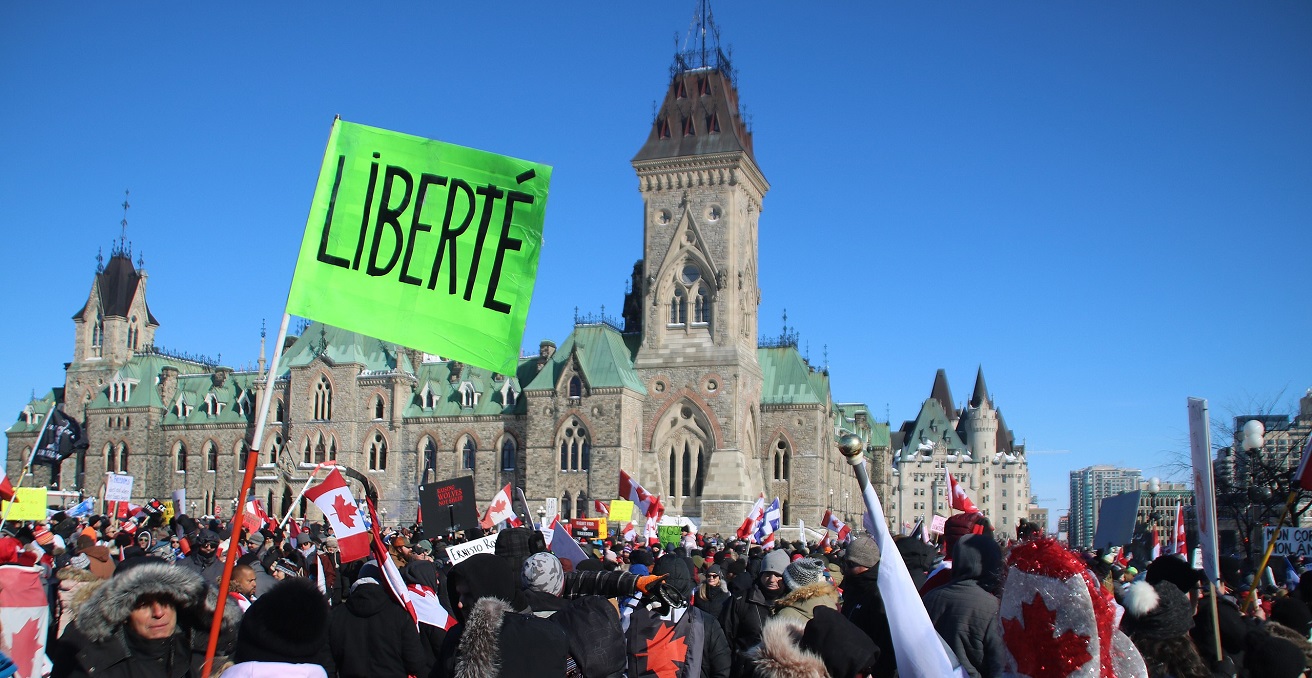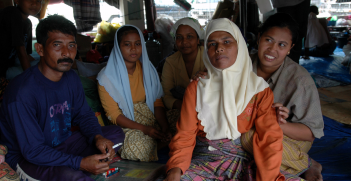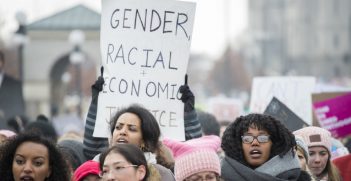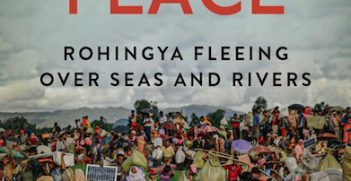Syrian Women’s Rights Defenders Face Ongoing Risks in ICJ Case

The case of Noura Al-Jazawi, a survivor of Bashar Al-Assad’s torture and sexual violence, exemplifies why the international community needs to keep standing up for the people of Syria. It is time for states to voice their disapproval and put action to words.
Last month, the Netherlands and Canada filed a case against Syria at the International Court of Justice (ICJ) for the Assad regime’s significant use of physical, psychological, and sexual torture. The case is based on the 1984 Convention against Torture and Other Cruel, Inhuman or Degrading Treatment or Punishment (Torture Convention).
The application outlines the Court’s jurisdiction which is based on the fact that all parties are signatory to the Torture Convention and none have made reservations to the paragraph granting the ICJ jurisdiction over a dispute. It outlines the myriad efforts the Netherlands and Canada have made to negotiate a resolution to their dispute with Syria. Most substantially, the application outlines the facts of the case, providing an overview of the Assad regime’s use of arbitrary detention, torture, cruel and other inhumane and degrading treatment, including sexual violence and child abuse as a means to punish and deter perceived political opponents.
The case draws on evidence gathered by the UN International, Impartial and Independent Mechanism (IIIM) to assist in the investigation and prosecution of persons responsible for the most serious crimes under International Law committed in the Syrian Arab Republic since March 2011.
It also draws on evidence provided by survivor activists like Noura Al-Jizawi, a feminist peace organiser in Syria who was a notable member of the opposition coalition during peace talks in Turkiye. She is the founder of Start Point, an organisation that works in Syria for victims of gender-based violence and has written blogs, organised protests, and testified before the UN Human Rights Council. Al-Jizawi was detained by the Syrian authorities in 2012 during which she was physically, sexually, and psychologically tortured for nine months.
Ms Al-Jizawi told this author, “Despite facing relentless pushback from the oppressive regime and those who resist women’s leadership, I fought as a young woman to carve out a space on the negotiation table, determined to amplify the voices and dreams of women and youth. I refused to let dictatorship, totalitarianism, misogyny, and the threats deter me or make me give up on the potential for a peaceful democratic change.”
It is well reported that the Syrian Government has used egregious sexual violence as part of its torture techniques against civilians in detention. This was reported internationally as early as 2011. Since then, the Syrian Human Rights Network has published an annual report; and Amnesty International, Human Rights Watch, the International Rescue Committee, and the UN have all published additional reports on various aspects of the issue.
Although the majority of people the Syrian government detains are men and boys, government forces and associated militia use sexual violence against all gender groups, sometimes with different strategic purposes. Primarily carried out by Syrian intelligence and militia forces, sexual violence against men and boys is used to instill fear and humiliate them for activities the government perceives as against the national interests.
They often use sexual violence against women and girls to intimidate and coerce male family members, but the same intent applies when women are detained for their own independent activism. Sexual violence is also used to dehumanise trans people and those who appear to be homosexual.
Outside formal detention facilities, it is primarily women and girls who have been victims of sexual violence. Families have been forced to watch state agents rape, and often gang rape, female family members. At checkpoints, sexual violence usually occurs in nearby buildings or vehicles, but in some cases male relatives are forced to watch these assaults.
In many ways, Noura Al-Jizawi’s story is a microcosm of the many injustices perpetrated against the people of Syria, and especially to Syrian women. She is an incredible woman, but the western world is still turning it’s back on her. The Canadian Border Services Agency has sent formal letters threatening her with deportation because of the very democratic work she undertook in Syria. They have attempted to separate her from her family and have threatened to remove her daughter’s citizenship. Meanwhile, her family in Syria are regularly threatened because of her work, and she has received death threats from influential figures in the region.
The Canadian Government clearly does not have a unified opinion on this issue. Conservative MPs have been pursuing one agenda, but some senators have been working to support Ms Al-Jizawi. The Department of Justice has led the joint case with the Dutch Government to call out the Assad regime’s longstanding use of torture and other cruel, inhumane, degrading treatment and punishment. But these efforts have often been hindered by other government departments, notably Canadian intelligence and the border security agency, which have been pursuing contrary aims, particularly as they relate to arguments made in the ICJ application.
Since the most recent ceasefire, many countries have been trying to normalise relations with Syria. But just because there are fewer bombs landing doesn’t mean the regime has stopped arbitrarily detaining people it perceives as political threats. Amnesty International has reported former refugees from France, Sweden, Denmark, Turkiye, and Lebanon being returned to Syria only to be tortured, raped and disappeared. This is not OK.
The space for women’s rights and women’s rights defenders continues to shrink at global and national levels. At the UN Security Council, where there was once universal support for resolutions on Women, Peace and Security, mounting frictions have become increasingly the norm as authoritarian governments work to restrict the debate and passage of resolutions advancing women’s rights in conflict.
Countries like Canada have not previously been so overt in their repudiation of their obligations to these resolutions. Indeed, Canada has several national policies designed to advance the Women, Peace and Security agenda and protect Women’s Human Rights Defenders. Like Australia, Canada has a National Action Plan on Women, Peace and Security. Ottawa also has a policy called Voices at Risk, a set of guidelines designed to help protect human rights defenders.
Ms Al-Jizawi is a survivor of sexual violence and other forms of torture, and this should be taken into account when dealing with her case moving forward. Instead, she has described the “traumatic ordeal of seeking a life of peace and normalcy, striving to rebuild the existence that was mercilessly snatched and ravaged by the Assad regime.” She can’t help but also wonder who else it is that benefits from Assad’s repression.
Noura Al-Jizawi has a right to international humanitarian protection and to be treated with dignity. That should come in the form of Permanent Residency in Canada, and Witness Protection to which she is entitled for testifying at the International Court of Justice. It may be Canada’s responsibility to provide her with these, but given their current process, international pressure is in order.
Susan Hutchinson is a PhD Candidate at the ANU Coral Bell School of Asia Pacific Affairs. Her background is as a civil-military professional with experience in the NGO sector, military and government organisations, specialising in women’s experience of conflict.
This article is published under a Creative Commons License and may be republished with attribution.





